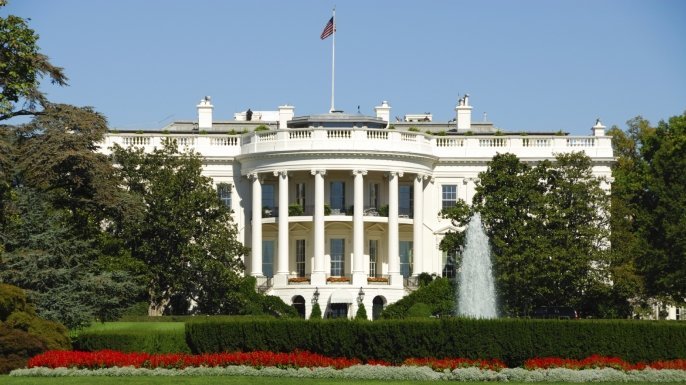

I have a confession to make. When I was a pre-teen, around ages eleven through thirteen, during the summer break from school I would watch soap operas. In particular, I was a fan of the show All My Children. The attraction of the soap opera was precisely the melodrama: the wild storylines, the passionate love affairs culminating in emotion breakups, the fact every episode would end with a couple cliffhangers, making you come back tomorrow to see how the plot line resolved itself.
I enjoyed these kinds of shows for two or three years, but then tired of them. Every good story, it is said, has a beginning, a middle, and an end. One of the shortcomings of soap operas (in addition to the bad dialogue and mediocre acting) is that the shows were essentially perpetual. The top soap operas of the day—All My Children, The Young and the Restless, Days of Our Lives—had already been on for decades and would end up having forty- or fifty-year runs. The whole point of the show was that nothing is ever actually resolved. The story had no end. And since you need an end to know what the middle is, there was no middle, either. It took me two or three summers, but I eventually figured out that however enjoyable was the decadent craziness of daytime drama, the stories were ultimately unsatisfying.
The older I get the more this is my attitude toward American politics. I was a politically precocious youth, very interested in politics at the same time as I was interested in soap operas. I have firm memories of every presidential election since 1980. What one learns after following politics for many decades is that like soap operas there is never any resolution. Every satisfying win is followed eventually by a stunning defeat, and vice-versa. If you are expecting some kind of ultimate resolution to politics, you are going to be waiting a long time. Actually, until the end of time.
Just a couple of relatively recent examples will do. After the attacks of September 11, 2001, Republicans had pretty good fortunes. Drawing on the popularity of George W. Bush’s response to terrorism, Republicans did well in the 2002 mid-term election, even though normally the president’s party fares poorly. While Bush’s 2004 reelection was fairly narrow, nonetheless it was a reelection. Republicans were flying high. And then two years later in 2006 they got walloped in the midterms and by 2008 were being kicked out of the White House.
But a similar thing happened just at that time. Barak Obama’s 2008 victory was accompanied by strong Democratic legislative majorities, even a filibuster proof majority in the Senate for a time.Time magazine had Obama on the cover as a new Franklin Roosevelt, a path breaking president who was ushering in a new era of Democratic dominance. That new era lasted at most two years. Republican Scott Brown’s victory in the special election to fill Ted Kennedy’s Massachusetts Senate seat was a precursor to massive Republican gains in the 2010 election. Obama himself called that election a “shellacking.” While Obama would win reelection in 2012, far from inaugurating Democratic realignment when Obama left office in 2016 his party was in the worst electoral position it had been in in almost a century, losing the White House, Congress, and in the time of Obama’s reign multiple governorships and over 800 state legislative seats.
This is why I have become somewhat sanguine about the 2024 election. Yes, for the third election running we have two deeply flawed candidates. Therefore, whoever wins will end up being deeply disappointing. The only question is the nature of that disappointment. But this too shall pass. There will be more elections. This week the arguments are over immigrants eating dogs, rotten debate moderators, whether Tim Walz lied about his military record, which candidate is a bigger stooge for Putin. I don’t want to suggest the hot issues of the day are unimportant (although some of them ultimately are), but in six months it will be a new collection of controversies. We’ll have elections in 2026 and 2028. Another cast of characters will emerge. Just like in soap operas, it isn’t worth getting too wrapped up in any particular storyline. Maybe on election night 2024 you will go to bed very happy or very sad. Don’t worry. Just wait two years. It’ll likely change.
A good citizen keeps up with current affairs. But age should educate us that some perspective is necessary. Change is the only constant of daily news. Maybe putting less stock in today’s fights and educating oneself on more lasting matters is the right policy. Learn about the American founding. Read a good history of some important part of the world. Today Russia and Israel are very much in the news. Those would be fine places to start. In addition to watching debates, maybe pick up a good collection of political rhetoric, perhaps of one of our finer statesmen such as Abraham Lincoln or Winston Churchill. Of course, great literature is always edifying. If we are interested in politics, reading Macbeth or Henry V will provide more wisdom and perspective than diving into this year’s election in granular detail. When we think of grand history and great figures of history and literature, immersing ourselves in the travails of Donald Trump and Kamala Harris is about as fruitful as a deep dive into the life of Erica Kane. We can do better than that, I hope.